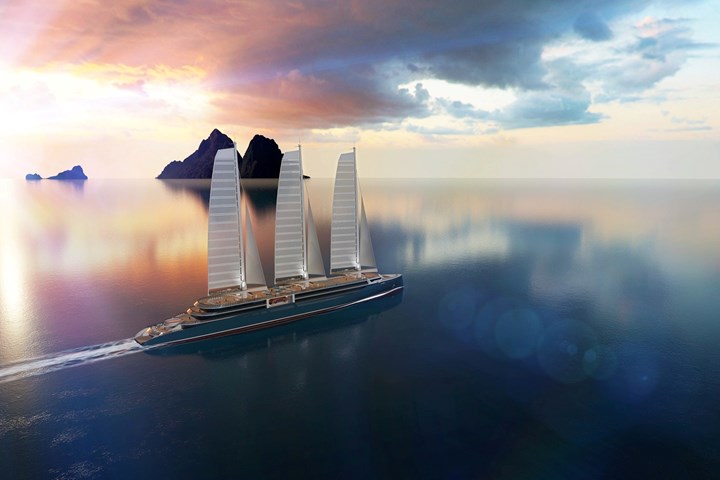Hexcel HexPly M9.6 prepregs receive type approval for marine use
Third-party certification guarantees lightweight composite quality, performance and consistency for more sustainable marine vessels.
Share
Read Next
Hexcel Corp. (Stamford, Conn., U.S.) has received type approval for its HexPly M9.6GF prepreg products from testing, inspection and certification services company Bureau Veritas (BV, Neuilly-sur-Seine, France).
The third-party certification enables Hexcel’s carbon fiber-reinforced epoxy prepregs to be used in the production of parts for all BV-approved marine vessels. It also guarantees the quality, performance and consistency of the prepregs for ship and boatbuilders.
BV-approved HexPly M9.6GF prepregs can be reinforced with unidirectional (UD), noncrimp (NCF) and twill-weave fabrics. They are particularly suitable for use in the manufacture of masts and other large structural components for wind-assisted ship propulsion (WASP). To reduce reliance on engines and cut fuel use, WASP vessels harness the power of ocean winds, often using large carbon fiber-reinforced masts flying durable composite solid sails.
HexPly M9.6 prepregs were recently used to manufacture the mast for the Chantiers de l’Atlantique Silenseas project. The HexPly M9.6 prepregs satisfied all the requirements of the Silenseas consortium’s mast-section manufacturers for quality, mechanical performance and processing characteristics, while also proving to be cost effective.
“Hexcel has supplied advanced composite materials to the marine industry for more than 40 years,” Thomas James, marine business development manager, Hexcel, says. “Receiving BV type approval for our HexPly M9.6GF prepregs demonstrates that we are committed to developing new composite technologies for the marine sector, helping builders evolve their designs to produce lighter, more fuel-efficient and more sustainable craft for the future.”
Related Content
-
Plant tour: Middle River Aerostructure Systems, Baltimore, Md., U.S.
The historic Martin Aircraft factory is advancing digitized automation for more sustainable production of composite aerostructures.
-
ASCEND program update: Designing next-gen, high-rate auto and aerospace composites
GKN Aerospace, McLaren Automotive and U.K.-based partners share goals and progress aiming at high-rate, Industry 4.0-enabled, sustainable materials and processes.
-
Natural fiber composites: Growing to fit sustainability needs
Led by global and industry-wide sustainability goals, commercial interest in flax and hemp fiber-reinforced composites grows into higher-performance, higher-volume applications.
















